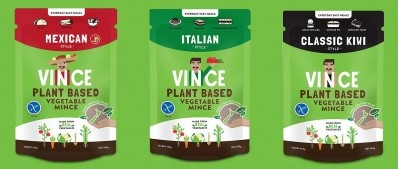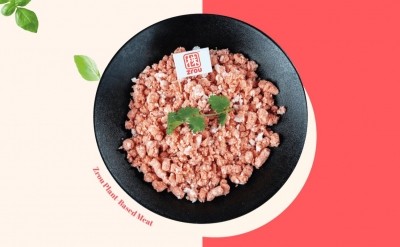WATCH: Accelerating plant-based innovation: Why Singapore’s ecosystem and food security focus appeals to Givaudan and Buhler
The two Swiss giants want to work with food firms, start-ups and university researchers across the APAC region who are keen to co-create plant-based foods catering to the Asian palate.
The centre combines Bühler’s expertise in extrusion and processing equipment together with Givaudan’s flavour and culinary know-how.
Businesses will be supported throughout the co-creation process, from raw material selection to product development, research, application, flavour science, extrusion and consumer testing.
The centre is located in Givaudan’s existing site in Woodlands, Singapore. At 400 sqm, it is constructed with a wet and dry extruder capable of producing up to 40kg of plant protein an hour.
Watch the video to find out more.
Strategic location
This is Givaudan and Bühler’s first global Protein Innovation Centre, and Singapore was selected for its strategic geographic location and thriving ecosystem.
Monila Kothari, APAC President at Givaudan, said having the centre located in Singapore meant an opportunity to create products for the Asian consumer.
“So far, the plant-based products coming into this region are products that have been developed for consumers from Europe or North America.
Ian Roberts, chief technology officer at Bühler, agreed: “The burgers and sausages that have become prevalent across western society are not going to fit the palette and the taste here.
“I think we can unlock a dietary change by using the right ingredients that are sustainable but really meeting local, local tastes and local requirements,” he added.
Kothari continued: “We wanted to be part of an ecosystem that is developing here in Singapore around food tech and agri-tech, especially with Singapore’s food security mandate to produce 30% of its food by 2030.”
“We’ve seen a lot of activity and funding in terms of encouraging entrepreneurs and start-ups to set up in this space.
“At the same time, Singapore is a melting pot of all cultures around Asia Pacific, which means that it is not difficult to develop products in Singapore for China, Indonesia or the Philippines because we have all of these nationalities working here.”
Roberts added: “Singapore is one of the world's leading hotbeds in terms of sustainable food system and innovation, and I think the two companies can play a key part in accelerating this journey.”
How it works
Roberts explained how the co-creation process would appeal to a start-up: “It's a one stop shop where you can fine tune your process requirements such that you get the right texture and throughput before you decide to scale up.
“At the same time, you will have a wealth of consumer insight and market understanding that comes from Givaudan and their capability to match that through flavours and formulation and bring a consumer preferred product to market,
“We aim to bundle that together as a service, not only for startups, but also for established companies to accelerate their innovation in the region.”
The Centre in Singapore will offer the wet extrusion technology for plant-based foods, which is a newer technology compared to the more common and traditional dry extrusion.
According to Roberts, dry extrusion is the traditional method and remains the most common for producing plant-based foods because it can be shipped dry without cold chain, and companies could finish manufacturing the product closer to the point of sale.
However, wet extrusion is gaining popularity as it can deliver a more fibrous structure akin to muscle and higher protein content compared to dry extruded products.
“With the step forward in technology towards wet extrusion, you can get much closer to the meat textures, and this is increasingly becoming more prevalent (in plant-based foods).”
Both companies hope to build up their network and partnerships in its Singapore Protein Innovation Center before exploring opportunities elsewhere.


















